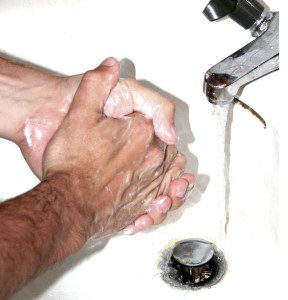Obsessive Compulsive Disorder
There are many different types of anxiety disorders but few have get as much coverage as obsessive-compulsive disorder.It is thought that roughly 2 – 3% of the worlds population suffer from OCD.
People talk about it all the time and even joke that they may have it, but what is OCD and why do people get OCD?
What is obsessive-compulsive disorder?
 It is a mental health problem like any other. It is an illness that can be treated with therapy and medication if required. Somebody suffering from obsessive-compulsive disorder is not able to control their obsessions and there resulting compulsive actions.
It is a mental health problem like any other. It is an illness that can be treated with therapy and medication if required. Somebody suffering from obsessive-compulsive disorder is not able to control their obsessions and there resulting compulsive actions.
OCD definition
OCD is a mental health problem that causes strange behavior. The definition is obsessive thoughts that lead to a compulsive action to try and sooth the compulsive thoughts. An example might be that someone may fear their hands are covered in germs and dirt, as a result they may wash their hands constantly to try and get rid of the germs.
In this example the obsession is the germs and dirty hands and the compulsive behavior is the constant washing of the hands.
What causes OCD?
It isnt entirely known what causes OCD. There has been loads of research but nobody seems to be able to pin down the exact cause. It is however thought that genetics and life experiences play a big part.
Are there different types of OCD?
Not really. There are different versions of the same disorder in that people obsess over and react to different things but, there are not different types of obsessive-compulsive disorder.
There are however different severity of the illness, ranging from mild to extreme forms. A mild case may mean that the sufferer carries on with every day life but obsesses over something, maybe security of their home. A severe case would completely take over the sufferers life, preventing them from living a normal life.
Symptoms of OCD
Symptoms can range from mild to extremely severe. In some cases the OCD completely takes over their life.But what are the key symptoms?
- Obsessive thoughts
- Compulsive behavior
As well as the above symptoms the obsessive-compulsive disorder sufferer will likely also suffer extreme anxiety.
obsessive-compulsive disorder effects everybody differently but it comes as a cycle that is difficult to break. The cycle is usually the same in most people. The process starts with an unwanted thought that goes around and around in the persons mind. The thoughts involved with obsessive-compulsive disorder causes severe anxiety and worry in the persons mind and causes the person to try and relieve the worry by carrying out a compulsive action…..And it does work, the action stops the anxiety temporarily causing relief in the obsessive-compulsive disorder sufferer. Until the worrying thoughts enter the persons mind again and the cycle starts again. You can take our free OCD Test as a kind of pre-assessment.
Obsessive-compulsive disorder treatments
obsessive-compulsive disorder can be treated like any other mental health issue. The usual treatments are therapy in the form of cognitive behavioral therapy or with medication.
CBT is extremely effective in the treatment of obsessive-compulsive disorder and usually involves forcing you to face the obsessive thoughts without letting you exercise the compulsive action. The aim is to break the cycle and gradually convince your brain that you don’t need to carry out the compulsive actions in order to make yourself feel better.
Medication used to treat obsessive-compulsive disorder are selective serotonin reuptake inhibitors. These drugs aim to alter the chemical balances in your brain.
Its worth noting that neither option is a quick fix and it may take 7 or 8 months to be effective. A combination of the two is often used.
The bad news is that treatment of obsessive-compulsive disorder is difficult and it often relies heavily on will power in order to work. The good news is that treatment is often very effective with time and effort from all parties.
obsessive-compulsive disorder is a distressing mental issue for any sufferer. obsessive-compulsive disorder can get better, there is always a chance you can beat it and break the cycle.
